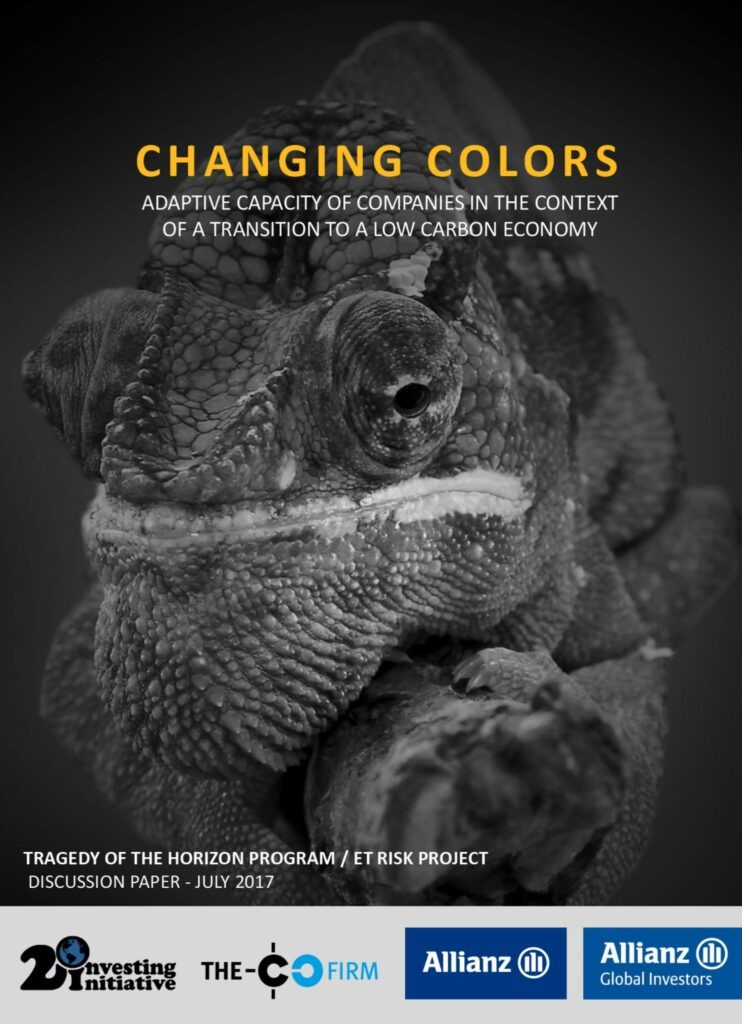A growing body of research and analysis highlights potential risks associated with the transition to a low-carbon economy, related to a combination of policy, market, legal, and reputational drivers (FSB, 2016). The European Systemic Risk Board (2016) suggests that these risks may be particularly material under a too late, too sudden scenario, where the transition to a low-carbon economy is triggered in a non-linear, disruptive fashion, thus reducing the ability for companies and markets to adapt. While this scenario may be the most ‘disruptive’, existing research on transition risk has generally not sought to quantify how adaptive capacity can protect companies from this risk.



